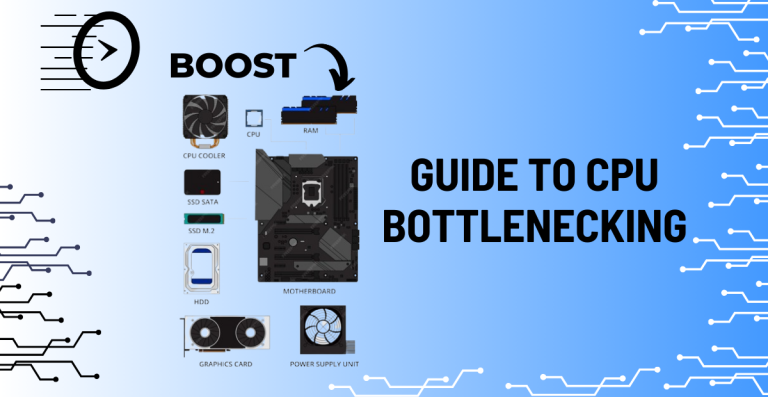Core Count vs Clock Speed: What Modern Games Really Need

It is not as easy as picking the CPU with the largest number on the box to choose the best one for gaming. While some processors have lightning-fast clock speeds and others have more cores, which one actually provides smoother gameplay? There is not a single, universal solution. The way that different games use your CPU can vary, and what you mean by the best can change depending on your GPU, resolution, and background tasks.
Knowing how your CPU functions enables you to make more informed upgrade choices, whether you are playing Fortnite or exploring the intricate cities of Cyberpunk 2077. By understanding how cores and clock speeds impact gaming, you can choose the best processor for your setup without going over budget or causing your system to lag.
What is a processor core? And what is a thread?
CPUs nowadays are capable of much more than just running your game. Cores and threads, two essential parts that cooperate to manage tasks, are at the center of every processor. It becomes easier to see how they affect actual gaming performance the more you comprehend them.
Physical Cores Described: The Workload’s Powerful Muscle
Your CPU’s physical processing unit is called a core. Consider it as a team member who can handle a distinct set of instructions. There are four of these workers in a quad-core CPU and eight in an octa-core CPU. More cores allow for the processing of more tasks at once, which is particularly helpful in games that have intricate systems operating in parallel, such as physics engines, AI behaviors, and world simulations.
Multithreading and Threads: Increasing the Efficiency of Every Core
A virtual task handler is called a thread. Simultaneous multithreading, also known as Hyper-Threading by Intel, is a feature of the majority of contemporary CPUs that enables a single physical core to handle two threads. By occupying idle processing time, this increases efficiency. An 8-core, 16-thread CPU, for instance, can handle 16 tasks at once, making it ideal for background tasks like streaming or system monitoring as well as gaming.
Assassin’s Creed: Odyssey: A Practical Illustration
For example, Assassin’s Creed: Odyssey. This game can be offloaded across multiple cores and threads to handle dynamic weather, enemy AI, background loading, and loading large open-world environments. During intense scenes, such as combat in a crowded city, a CPU with more threads can handle these tasks more fluidly, avoiding stutters or slowdowns.
How Many Cores Are Used for Gaming?
Not every game puts the same amount of strain on your CPU. Some titles can distribute their workload across numerous cores, while others hardly touch more than a few. Understanding how cores are used in contemporary games helps you avoid underbuilding or overspending on your setup.
Beyond Graphics
Input handling, audio processing, enemy behavior, and even file streaming are all handled by the GPU, not the CPU, which renders graphics. All of these systems work simultaneously in more recent games like Forza Horizon 5 and Cyberpunk 2077. High thread counts and CPUs with six or more cores help these games run more smoothly during scenes with a lot of traffic.
It is a different story with lighter games like League of Legends, Fortnite, or Minecraft. These games typically concentrate more on single-thread performance and use fewer threads. A quick quad-core CPU is frequently sufficient for these games, especially when combined with a top-notch GPU.
Modern gaming environments benefit from additional threads, even when a game does not require many cores. This is due to the fact that your system’s workload is increased by background apps, voice chat, Windows processes, and even game launchers. Your system will remain responsive even when under stress if it has more cores and threads.
How many cores should a gaming PC have?
Selecting the appropriate core count can make or ruin your gaming experience, but there is no magic number. It is about keeping your system future-ready while striking a balance between cost and performance.
In 2025, the following core count is advised for a gaming PC
In 2025, 6-core, 12-thread CPUs have emerged as the new standard for contemporary gaming. They can multitask with few hiccups and provide a seamless experience in the majority of AAA games. This is the best value range if you are building a system just for gaming at 1080p or 1440p.
However, if you want breathing room, an 8-core, 16-thread CPU is the true sweet spot. In addition to enjoying more fluid gameplay in CPU-intensive games like Microsoft Flight Simulator, you also free up more headroom for background processes like browsers, game capture software, or Discord, all of which continue to run smoothly while your game remains fluid and quick.
Is a 4-core processor still being used for gaming? You should not expect it to meet the demands of modern engines, but it might work for older or lighter titles. Longer load times, erratic frame pacing, and a lower minimum frame rate are likely to occur, particularly in scenes that are crowded or scripted.
Purchasing at least six cores, ideally eight, is a better long-term option if you want a build that lasts four to five years.
Do I Need an 8-Core, 16-Thread Processor?
With eight cores and sixteen threads, it is an alluring specification. It is as powerful as it sounds. However, what you do outside of gaming will determine whether you really need that much muscle.
Beyond Gaming: Streaming, Video Editing, and AI
- An 8-core, 16-thread CPU is very beneficial for 4K gaming and multitasking (twitch streaming, video editing, and AI tool use).
- You can run Call of Duty, OBS, browser tabs, and Discord with ease thanks to this CPU configuration, which manages demanding workloads without affecting gameplay.
- A well-clocked 6-core processor can frequently produce comparable frame rates for pure gaming at 1080p or 1440p.
- In less demanding or well-optimized games, some 4-core, 8-thread CPUs continue to function well.
- When playing demanding open-world games, pushing high refresh rates, or engaging in intensive multitasking, limitations become apparent.
- 8 cores and 16 threads are becoming the standard if your computer is used for gaming, streaming, and creating content.
What is clock speed?
What does clock speed actually mean for gaming performance, even though it is frequently the CPU’s most prominent number? Knowing this makes it easier to understand why, in some situations, faster clocks can outperform more cores.
Units and Definition: Knowing GHz
Clock speed, which is measured in gigahertz (GHz), indicates how many cycles a CPU can complete in a second. Four billion cycles are completed per second by a CPU operating at 4.0 GHz. Higher clock speeds typically result in tasks being completed more quickly because each cycle provides an opportunity to process instructions.
Relevance in Contemporary Devices: The Significance of Speed
The speed at which a single core can process instructions is crucial for games and applications, particularly for tasks that are difficult to divide among several cores. Because of this, clock speed is still very important, especially for older games and esports titles that are designed to use fewer cores.
Big.LITTLE Architecture: Intelligent Distribution of Workload
Big CPUs are used by some. LITTLE or hybrid architectures, which combine effective low-power cores with high-performance cores. By allocating tasks to the most appropriate cores, this design helps strike a balance between speed and energy consumption, increasing overall efficiency without compromising performance.
Base vs. Turbo Clock Speeds: The Important Difference
Processors have two speeds: a turbo or boost speed that they achieve during brief bursts of heavy work, and a base clock speed, which is the guaranteed minimum speed under load. Boost clocks enable the CPU to process demanding tasks more quickly, which frequently manifests in the performance of games during peak periods.
Which one is Better for Gaming? Clock speed vs Number of Cores?
It is not enough to choose one and disregard the other when choosing between clock speed and core count. Both are important, but how much depends on your spending limit and the kind of games you play.
Prioritizing Clock Speed Within Budget
Higher clock speeds give most players a more noticeable increase in frame rates, particularly in older games and esports where single-thread performance is crucial. In certain situations, a faster 4-core or 6-core CPU with higher clock speeds can perform better than a slower 8-core processor. Getting the maximum GHz your budget permits without giving up too many cores is the goal.
The Balance for Gaming Workloads
High clock speeds are still advantageous in modern AAA games, even though they use more and more cores. Accordingly, a mid-range CPU with six to eight cores and stable clock speeds (4.0 GHz or more) frequently finds the sweet spot. It seamlessly manages intricate game systems while allocating sufficient threads for background operations like voice chat or streaming.






